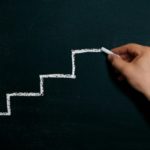Good instructional decision-making rests on accurate information. And in the case of tests and exams, we should be seeking student input more often than we do. No, we aren’t asking whether they want exams or what kind of exams they like. We need to know more about their learning experiences associated with the exams.
We’re making decisions about exams mostly based on suppositions—how we think they’re studying. We rely on feedback provided by their performance. Those with poor exam scores didn’t study, or they didn’t use good study strategies, or were so stressed by the exam they couldn’t think clearly. Those reasons aren’t all the same—they have different instructional implications. Exam performance feedback is after-the-fact input. Feedback collected at other times can provide details that enable us to better use exams and the events that surround them to promote learning and improve performance.
We need to be asking for details, not for judgments. We need to know the nuts and bolts: when do students study, for how long, by doing what, and with whom. With that knowledge, we can better design exam experiences.
And there’s a side benefit of asking. When we ask, we’re giving students the opportunity to confront how they studied in light of how they performed. It’s a chance to discover something about themselves as learners. Most students don’t know much about learning, in general, and they haven’t encountered themselves as learners. A good set of questions about their experiences associated with exam events, in your course or more generally, can be just as eye-opening for students as it can be for their teachers.
One final note: This “How Do You Study for Exams?” form is copyrighted. However, it may be used without permission by individual faculty seeking input from their students. And, you are free to alter the questions as well as survey format. The survey (and other like it) can be thought of as idea stimulators that lead you to the questions most relevant in your instructional situation. To encourage this kind of adaptation, the surveys include questions in both an open-ended format and closed question style where students provide ratings.
How Do You Study for Exams?
A Note from Your Teacher
I’m interested in learning more about how you study for exams in general, and how you’re studying for them in this course. My goal is to teach in ways that support your efforts to study, that help you learn the material, and do well on the exams. I can do that better if I’m not guessing about how you study. So please be honest. The goal here is not to impress me with how much you’re studying, but to help me understand your exam preparation process. Thanks for taking the time to answer these questions. I will be talking to the class about what I learn.
Tell me about your study habits in this course:
When do you start studying in earnest for an upcoming exam in this course?
How much time you devote to studying for an exam in this course? In your hardest course?
If the goal is getting an A on an exam in this course, how long would you estimate you will need study?
Briefly describe how you study for exams in this course.
When you’re studying and you discover something you really don’t understand, what do you do?
How do you decide what you need to know for the exam?
When you go into an exam in this course, how confident are you that you’ve studied the right things?
Do you multi-task when you’re studying for exams in this course? If so, what else are you doing while you are studying?
What study strategies are working best for you in this course?
Are there any instructional strategies being used in the course that help you prepare for exams?
Are there any aspects of my teaching or how the course is organized that make it difficult to prepare for the tests?
Select the best answer(s):
How much time do you spend studying for an exam in this course?
▢ less than one hour ▢ 2-5 hours ▢ 5-10 hours ▢ 10-15 hours ▢ more than 15 hours
How much time do you spend studying for an exam in your hardest course?
▢ less than one hour ▢ 2-5 hours ▢ 5-10 hours ▢ 10-15 hours ▢ more than 15 hours
If you want to get an A on an exam in this course, how long would you have to study?
▢ less than one hour ▢ 2-5 hours ▢ 5-10 hours ▢ 10-15 hours ▢ more than 15 hours
How do you study for exams in this course? [check those that apply]
__ go over, as in reread, my notes
__ recopy my notes
__ read the text for the first time
__ reread the text, focusing on important parts of it
__ memorize important definitions and facts
__ test myself with questions I think might be on the exam
__ use flash cards to test my understanding
__ study with a classmate(s) by discussing content you think will be on the exam
__ other (please describe)
If you multi-task when you’re studying for exams in this course, what else do you do while you’re studying? [check those that apply]
__ listen to music
__ check social media
__ surf the web
__ shop online
__ text friends
__ check email
__ talk with those nearby
__ eat
__ watch TV
__ work
__ other (please describe)
How important are the study skills you’re using in this course for your success as a professional?
▢ not at all important ▢ somewhat important ▢ very important
When you came into the first exam in this course, rate how confident were you that you’d studied the right material for the exam?
▢ not at all confident ▢ somewhat confident ▢ highly confident
Rate the effectiveness of the study strategies you are using in this course
▢ highly ineffective ▢ somewhat effective ▢ highly effective
Rate how motivated you are to improve your use of study strategies in this course
▢ not at all motivated ▢ somewhat motivated ▢ highly motivated
Are the instructional strategies being used in the course supporting your efforts to prepare for the exams?
▢ not at all supportive ▢ somewhat supportive ▢ very supportive
Tell me about how you study for exams in general
Do you study for exams between exams? How much? By doing what?
In general, what study strategies do you rely on when preparing for exams?
What exam study skills do you need to develop or do you need to use more effectively?
How would you characterize your time management skills when it comes to studying for exams?
Is performance on exams a function of your natural ability or the result of being well-prepared for the exam? Which is more important?
How important are study skills for your success as a professional?
Do you prepare for exams by working with others? How often? If so, what do you when you study with others? If you don’t study with others, is that a strategy you should be using?
 Download a copy of these questions.
What to do with the results. . .
Download a copy of these questions.
What to do with the results. . .
- Share them with a trusted colleague. Before doing so, make a list of your main conclusions and what you plan to do about them. After your colleague has looked over the results, share your list and ask if those would be his or her conclusions and recommended actions. Don’t underestimate how vested we are in our teaching, how emotionally most of us respond to negative feedback, and how seriously that compromises our ability to look at the feedback objectively.
- Talk about the results with the class. This can be done via an in-class discussion, an email to the class, or a discussion board post with the invitation for further feedback. Point out where the feedback is contradictory. Point out where the feedback recommends a change that you aren’t going to make and explain why. Point out where you are going to make a change based on the feedback they gave you. If you think students would benefit, show examples of particularly constructive comments, not necessarily ones that say nice things but ones that present the feedback in a positive and helpful tone.
- Ask students to prepare a short reaction paper that offers an assessment of how they study for exams. Do they need to make any changes? If so, what changes do they need to make and are they going to make them?
- Keep the results. Save both the survey and the results with the intention of collecting feedback again. Are students in subsequent courses responding similarly? If you’ve implemented a change based on student feedback, be sure to ask about its impact on their efforts to learn.













